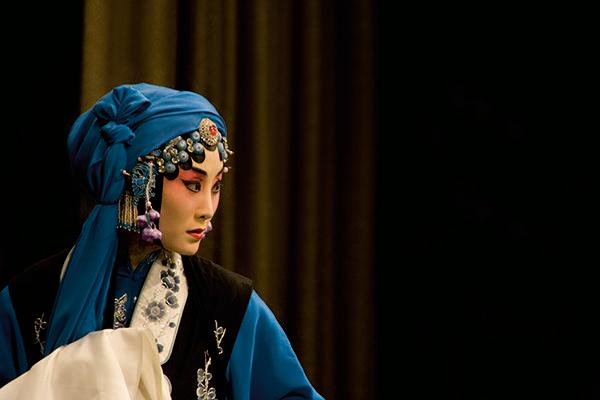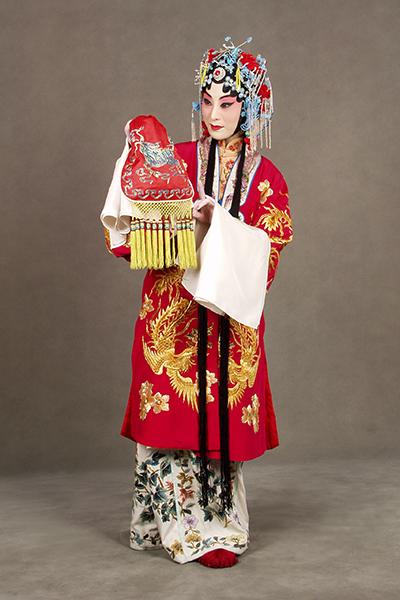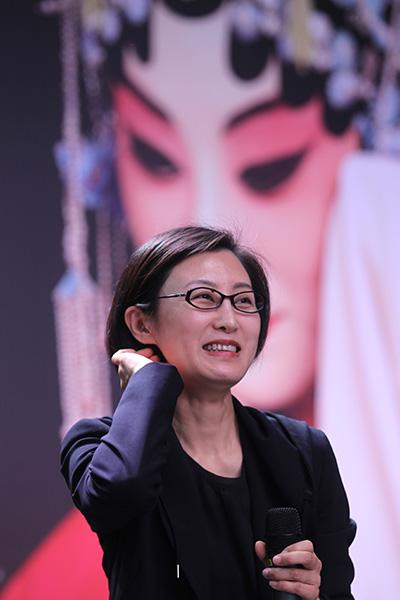
Zhang Huoding enjoys great popularity among Chinese Peking opera fans. Her upcoming performances include shows later this month in Beijing and in New York in September.[Photo/Provided to China Daily]
While traditionalists often complain that ancient Chinese art forms are facing extinction, Zhang Huoding, a Peking opera actress, is reviving the old practice.
Despite keeping a low profile in the media, the performer has become one of the country’s most-loved opera artists, thanks to her melodious singing voice and outstanding performances. Not only have the elderly followed her career with keen interest, youngsters have also given her pop starlike status.
On May 28, at the closing ceremony of the ongoing 15th Meet in Beijing Arts Festival, one of the largest art festivals in China, Zhang will present classic works created by Peking opera master Cheng Yanqiu (1904-58), including Reunion in the Dream and The Jewelry Pouch.
Zhang will make her debut at the Lincoln Center for the Performing Arts in New York City in September by performing two shows, The Jewelry Pouch and The Legend of White Snake.
“In 1930, Mei Lanfang (1894-1961) brought Peking opera to the United States for the first time and his art surpassed the language and cultural obstacles. I believe Zhang will carry on the legacy by displaying the charm of Peking opera to American audiences,” says Fu Jin, a professor at the National Academy of Chinese Theater Arts, a top institution for traditional Chinese performing arts.

The Jewelry Pouch, performed by Zhang Huoding. [Photo/provided to China Daily]
“When you go to Zhang’s shows, you can feel the warm atmosphere of the audience, which reminds you of the golden era of Peking opera,” Fu says.
Wearing a navy blue blazer and a short, tidy hairstyle, 44-year-old Zhang recently participated in a media event for the festival at the National Academy of Chinese Theater Arts.
Despite her fame, she has led a simple life and has never used social media platforms such as WeChat and micro blog.
She spends most of her time with her students and taking care of her 3-year-old daughter.
“I am not an ambitious person. I have very few shows every year so I guess that’s why audiences want to see me,” says Zhang, who left China National Peking opera Company in 2010 to become a professor at the National Academy of Chinese Theater Arts.
When asked about the upcoming shows, Zhang says many works of the Cheng school, one of the four major schools in Peking opera, are tragic stories, and she likes the role of Bai Suzhen in particular, the lead character in The Legend of White Snake, which is a personified snake spirit married to Xu Xian, a human.
“I was attracted to the role of Bai. She is crazy about love,” says Zhang, who performed the whole work for the first time in 2000 when she was with the China National Peking opera Company. “The classic work contains a tragic love story, lots of martial arts ... so I believe that American audiences will like it.”
Compared with many Peking opera actors, who learned the traditional art when they were young, Zhang, who came from Baicheng city in Northeast China’s Jilin province, studied Peking opera at age 15.
A late start is considered a disadvantage for Peking opera actors and actresses, who need to train their bodies and voices early in life.

Zhang failed three times when applying to Peking opera schools but her obsession with the art led her to keep trying until in 1986, she made it to a school in Tianjin.
In 1989, Zhang started learning the performing style of the Cheng school with renowned Peking opera master Zhao Rongchen (1916-96), which ushered her into a clear career path.
Her first Peking opera teacher was Zhang Huoqian, her elder brother, who is a veteran wu sheng, or the warrior role of Peking opera.
Zhang Huoqian once said in an interview that he didn’t expect his sister to be so popular as an opera actress since “she didn’t display any great talent when learning Peking opera in the beginning”.
“But what made her special is her shy and calm personality, which fits the style of Cheng school,” he said.
If you go
7:30 pm, May 27-28. National Center for the Performing Arts, 2 West Chang’an Avenue, Xicheng district, Beijing. 010-6655-0000.
